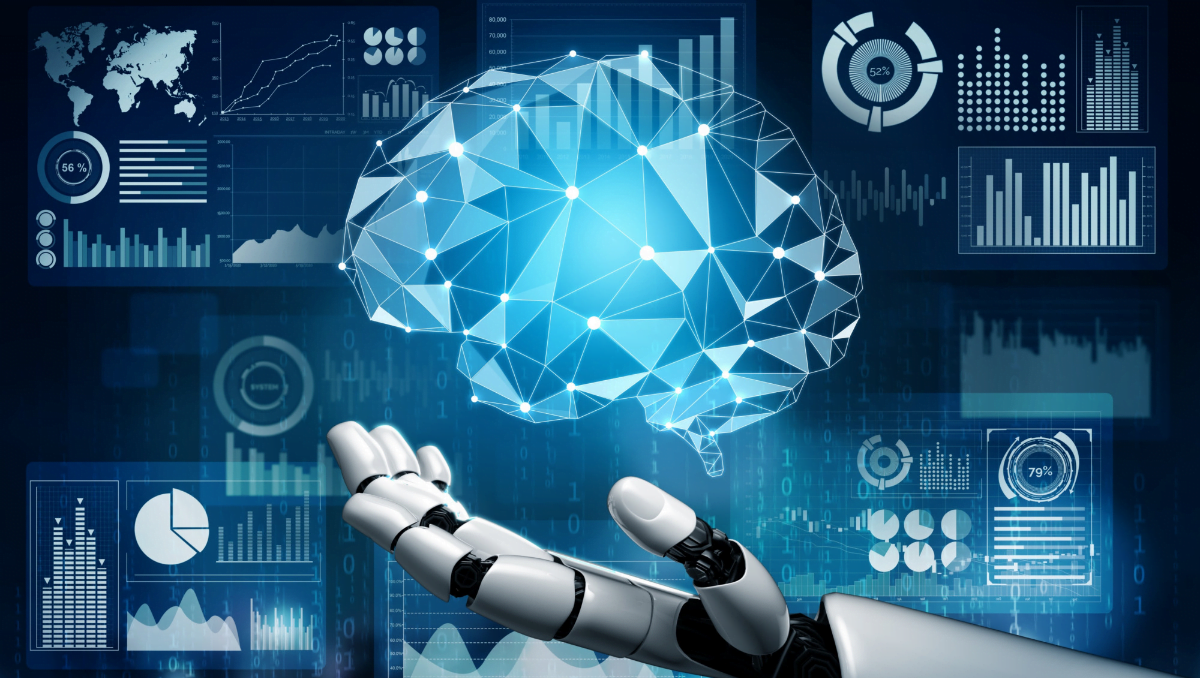Machine learning, a subset of artificial intelligence (AI), refers to the ability of machines to learn from data and make predictions or decisions without explicit programming. By detecting patterns and applying algorithms to data, machine learning systems can generate insights and predictions, improving their performance over time.
The benefits of using machine learning are multifold. It helps in automating tasks, improving efficiency, making accurate predictions, and offering personalized experiences. However, machine learning also brings challenges such as data privacy concerns, the need for vast amounts of data, and potential bias in the models.
The Wide Application of Machine Learning Today
Machine learning has permeated various sectors and is transforming the way we work, live, and interact with the world. It’s being used to drive innovations and improvements across multiple industries.
In healthcare, machine learning aids in diagnosing diseases, developing novel treatments, and delivering personalized patient care. It can analyze large datasets from medical records and imaging data to predict disease progression, suggest suitable treatment plans, and enhance patient outcomes.
In finance, machine learning is being harnessed to predict market trends, manage risk, and assess creditworthiness. It can sift through vast amounts of financial data and generate valuable insights, making financial processes more efficient and accurate.

In transportation, machine learning is employed to optimize traffic flow, enhance safety, and propel the development of self-driving cars. Traffic management systems powered by machine learning can analyze and predict traffic patterns, while autonomous vehicles use machine learning for navigation and decision-making.
In retail, machine learning is revolutionizing the way businesses interact with their customers. It’s used to personalize product recommendations, elevate customer service, and prevent fraud, enhancing the overall shopping experience.
Machine Learning in Action
The practical application of machine learning has resulted in groundbreaking achievements. One such example is AlphaGo, an AI developed by DeepMind, which made history by defeating a world champion at the game of Go, demonstrating the potential of AI to tackle complex problems.
IBM’s Watson, which leveraged machine learning to win Jeopardy!, is another significant achievement. Watson’s ability to understand and answer complex questions showcased the power of natural language processing, a subfield of machine learning.
DeepDream, developed by Google, uses machine learning to transform ordinary images into psychedelic, dream-like images, demonstrating the creative potential of AI.

The Future of Machine Learning
Machine learning’s future holds tremendous promise. As technology evolves and computational power increases, machine learning models will become even more sophisticated and capable, tackling more complex and nuanced tasks.
Machine learning will be integral in solving grand challenges, such as climate modeling, disease prediction, and quantum computing. Its ability to handle vast data sets and make accurate predictions will make it a vital tool in these areas.
Moreover, machine learning will redefine our work and lives. It will automate mundane tasks, enhance decision-making, and create more personalized and interactive experiences.
Conclusion
In conclusion, machine learning is transforming numerous sectors and has the potential to dramatically reshape our future. Its ability to learn from data and make accurate predictions offers immense possibilities, though it also brings certain challenges.
We’re standing at the precipice of an exciting era of technology. It’s crucial to learn more about machine learning, understand its potential and limitations, and prepare for a future shaped by AI.
This post contains affiliate links.
Author

This article was written with the assistance of AI. Edited and fact-checked by Ronan Mullaney.
View all posts







